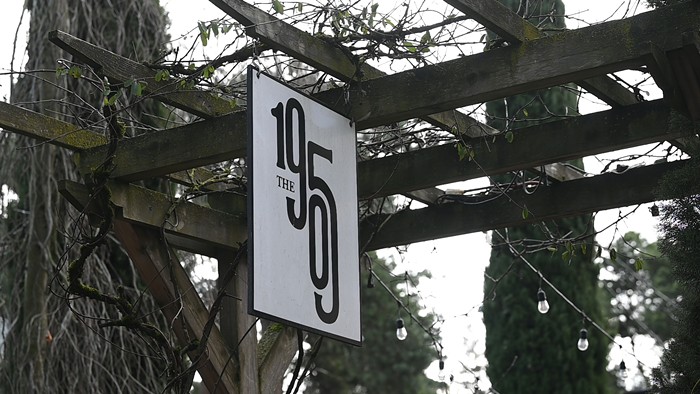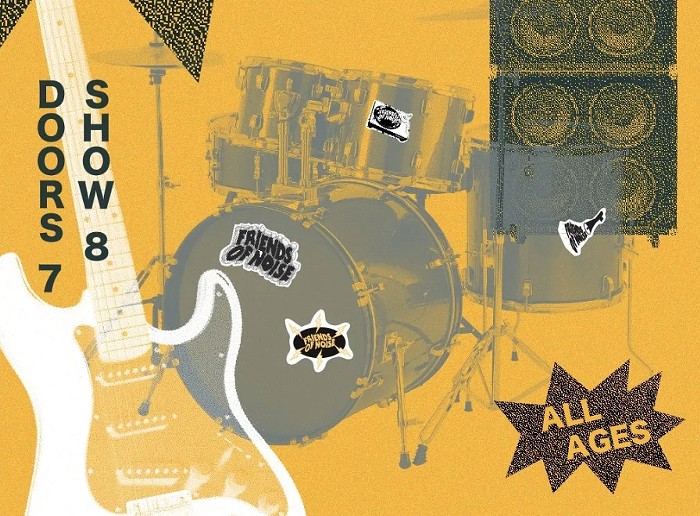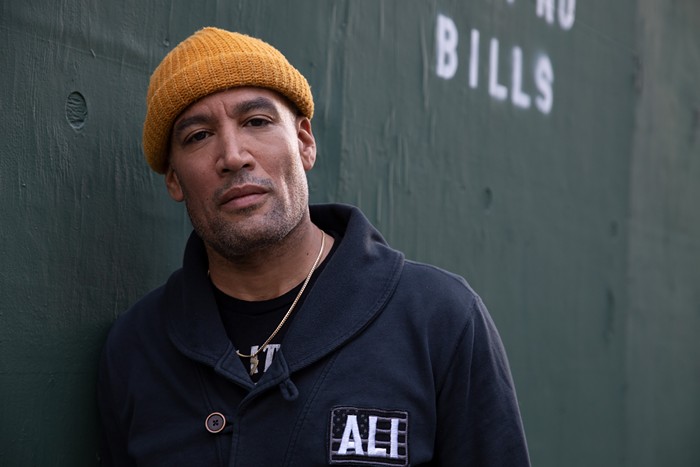THE MEMBERS of Witch Mountain are gathered in their North Portland practice space to work through one last set before taking off on a month-long headlining tour. The sounds that are about to rattle the pale walls may spell doom, but the band is all smiles. They're set to fly out the following day to Tampa, Florida, for the Scion Rock Fest, a mammoth assemblage of 26 black-clad bands including Sleep, thrash legends Exodus, and Saint Vitus, a band hugely influential to the members of Witch Mountain.
To say it's been a big year for the band would be an understatement. Prior to 2011, Witch Mountain appeared destined for cult status, a band with one release to their name, a revolving cast of bassists, and a couple members who traded in their amplifiers for cribs. Then vocalist Uta Plotkin entered the picture in 2009, and with the release of South of Salem last year—their first release in a decade—Witch Mountain was reborn.
"Having Uta made us way more dynamic," says drummer Nate Carson. "We had a reason to be quieter."
The release of Witch Mountain's latest LP Cauldron of the Wild takes that philosophy a step further, a record that's as moody as it is heavy. At first, Plotkin's flawless delivery might sound out of place over riffs that could have been manufactured in the deepest bowels of Hades, but it quickly begins to make sense. Plotkin's range is impressive—from her soaring vocals to her demonic growl on "Beekeeper."
"I'd been wanting to play loud, rocking stuff, but I didn't have the voice for it," explains Plotkin, a classically trained vocalist who also sings in a tribal, ambient project called Aranya. She credits a DVD called Zen of Screaming for her transformation. "It's something I had to learn in order to sing metal."
While Plotkin has no doubt pushed Witch Mountain to new listeners (and, in the process, helped put Portland on the metal map), the band and its cofounders, Carson and guitarist Rob Wrong, have been championing the doom movement for well over a decade. Carson and Wrong point out Neurosis and Saint Vitus as pivotal bands in their formative years.
"I always thought it was a few bands copying Black Sabbath, but I realized they were doing it on purpose," says Carson of those bands' proclivity for the glacial. "And once I saw Rob playing with Iommi Stubbs, I knew he was my brother on our doom mission."
With Plotkin and new full-time bassist Neal Munson on board, the band is clicking like never before. Half of the six songs on Cauldron of the Wild were written last year and performed live, while the rest were written in the months leading up to the recording (Wrong says he holed himself up in his room with a bag of mushrooms and wrote most of the newer riffs). The whole thing was recorded in nine days, and mixed in two.
Carson says he likes the idea of putting out a record a year, pointing to the '60s, when bands cranked them out at a regular clip. Wrong nods, but admits the process could take a little longer.
"Summer's for having fun," says Wrong. "Shitty weather is for staying in and writing songs."



















